Drunken Rum Seminar
I tend to go on benders every now and then. I'm generally a man driven by extremes, polarized between two poles, fluctuating frantically between yin and yang. Sometimes I don't drink a drop for days. Sometimes I pass out on the living room floor. Lately though I've had the thirst, and when I have this insatiable thirst for booze I now try to make it at the very least educational. Tonight I feel like drinking a ton of rum because I am simply curious about what makes rum unique. What's the difference between Jamaican rum and rum from Barbados? Does Fijian rum have a distinct profile? What should one expect when purchasing one rum from the next? As I posted earlier this week, rum is a melting pot of different styles and it is hardly regulated, making consumer education quite difficult. I'm purposely leaving out sweeter, Cognac-style rums like Ron Zacapa, Zafra, Zaya, Diplomatico, and El Dorado because they all fit into the same smooth and supple mold. Tonight I am looking to break down some unique flavor profiles, nothing more. We'll save the book smarts for another time. Right now, I just need to get into this booze, understand it, and break it down. Low light photography, here we come!
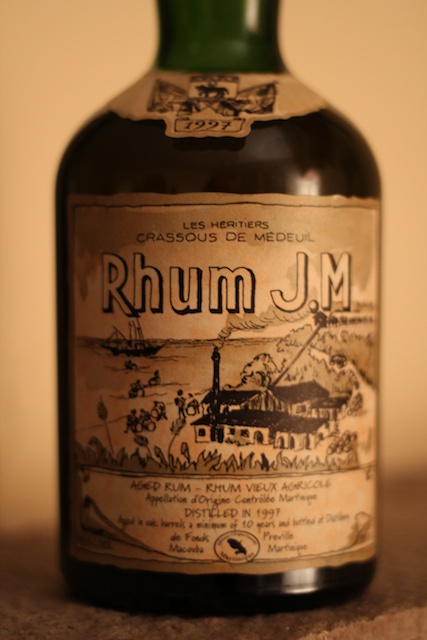
Leading off tonight's session is the 1997 Rhum J.M. from Martinique, an agricole rum that is made from the freshly fermented sugar cane juice, rather than molasses. This is a vintage dated rum from an actual AOC rhum classification on the island of Martinique, giving it regulated standards like Cognac or Armagnac. JM has been in operation since 1845 and makes a variety of outstanding products. This particular agricole rum has been aged in cask for about ten years, but the earthy and heavy flavors of the spirit still dominate. Agricole rum is always funkier than rum distilled from molasses, to the point that some people who are unaware of the difference think they have purchased a tainted bottle. This particular rum is quite mellow, but there are some serious herbal notes on the finish - freshly minced sage and grassy flavors penetrate. Quite interesting, but not something to toy around with. Hopefully, you know what you're getting into for $100.
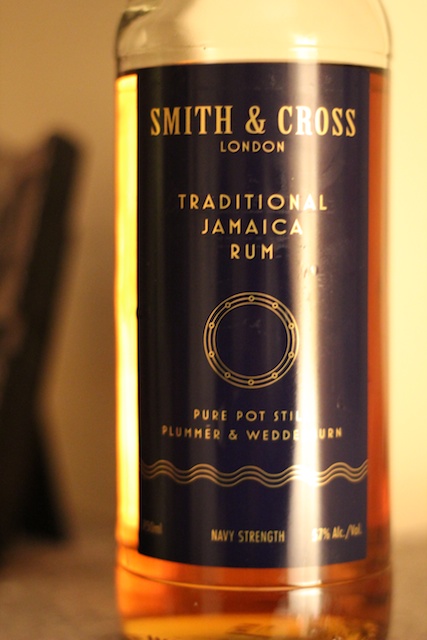
Next up, Eric Seed's Smith & Cross Jamaican Pot Still Rum - the choice of champions for cocktails, but quite a tasty speciman with fantastic typicity. This is a heavy, earthy, aromatic rum that is brimming with molasses and fermented aromas. There is no sweetness to this rum, however, so don't let the aromatics fool you. This is a hot and heavy rum made to cut through any tropical juices you may care to add with it. Bottled at "navy strength" and very similar to the Black Tot rum that the British would ration out to the Royal Navy as part of their munitions. However, it doesn't taste anything like Appleton, perhaps the most famous Jamaican rum in the world. Maybe the pot still, small batch distillation gives it more character? Add some water to this if you plan on sipping it. It's quite special.
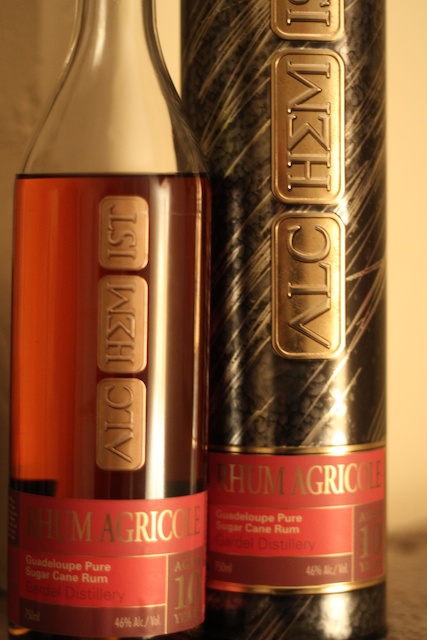
Next up is the now sold-out Alchemist bottling of Gardel 10 Year Old Argricole rum from Guadeloupe (I won't hyperlink it because hopefully you got one when we still had it). Gardel was a sugar refinery and rum distillery (these two have always gone hand in hand) that closed some time before 1990. This independent bottling from Scotland's Alchemist series combines the sherry-aging sweetness with the earthy and powerful flavors of agricole style rum. Caramelized richness on the nose, bold and spicy character on the palate, with a lengthy, herbal finish - peppery and earthy. I did have the chance to taste the Berry Bros. Guadeloupe rum and it was nowhere near as powerful, but I also don't believe it to have been an agricole. It was more mild, with vanilla aromas and a dry, spicy heat.
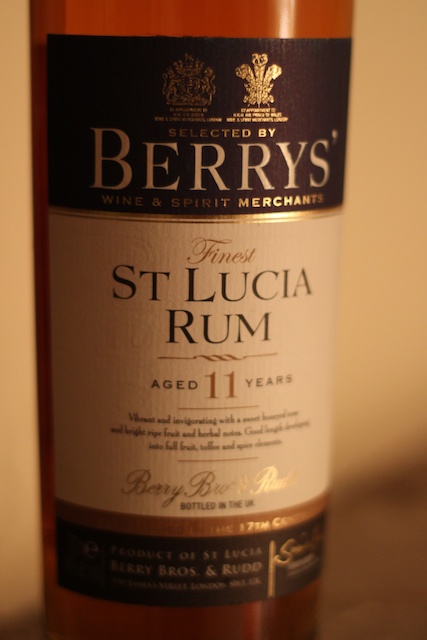
I just polished off the last little bit I had of this rum (this full bottle in the picture is for a friend) and it is one of the most amazing, complex, and exciting rums I've ever tasted. The Berry Bros. 11 Year Old St. Lucia is expensive and worth every penny of the price. It exudes fruit tea, menthol, eucalyptis, and cherries. It explodes on the palate and makes me want to try more rum from St. Lucia. However, I did try some Chairman's Reserve rum from St. Lucia the other day and it tasted NOTHING like this. Why is this rum so amazing and where did it come from specifically? This is the problem with poor regulation - there's no information!
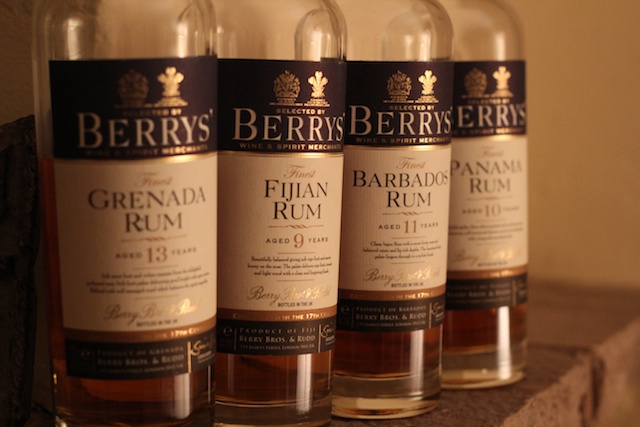
The rest of the BBR rums. Let's start with the Panama 10 Year - hints of fruit, subtle toffee, mild sweetness and a rather spirity finish. Is it from Don Jose distillery possibly? The home of Zafra? Maybe. Could I pick Panama out of a line up? No chance. It's rum. Nothing stands out other than that it makes me happy to drink it. Barbados 11 Year - the home of Mount Gay distillery and and likely the origin of the rum industry as a whole. These guys on the Caribbean island have been distilling since the 1600's and dealing with pirates, scallywags, and all that. This is a luxurious rum - loaded with sweet tropical fruits, but not sweet in itself. Barbados could be the quintessential style of rum and this tastes like what you expect good rum to taste like - honey, molasses, golden fruit, yum. The Fijian 9 Year smells an awful lot like the Smith & Cross - big, heavy, earthy molasses with a load of fruit and honey mixed with tea. This is really quite nice and very special. I've never seen another Fijian rum in my retail career so this is very unique. It's probably from Seven Tiki distillery located next door to a large sugar refinery and the only producer on the island that I'm aware of. The Grenada 13 Year is a combination of the Fiji/Jamaica style with the Barbados - richer and fatter mouthfeel, but an earthy and heavily aromatic nose. Lots of fruit and honey as well.
In the end, what does this teach me about the regional differences of rum? I'm not sure. I can definitely pick out an agricole rum from a flight of other rums, and I might be able to sniff out a Jamaican, but as for the other guys I'm still pressed to find a real difference. Only more tasting will solve this dilemma. I have more work to do before I hit the hay. Rum is fascinating to me. What a fun job!
-David Driscoll
